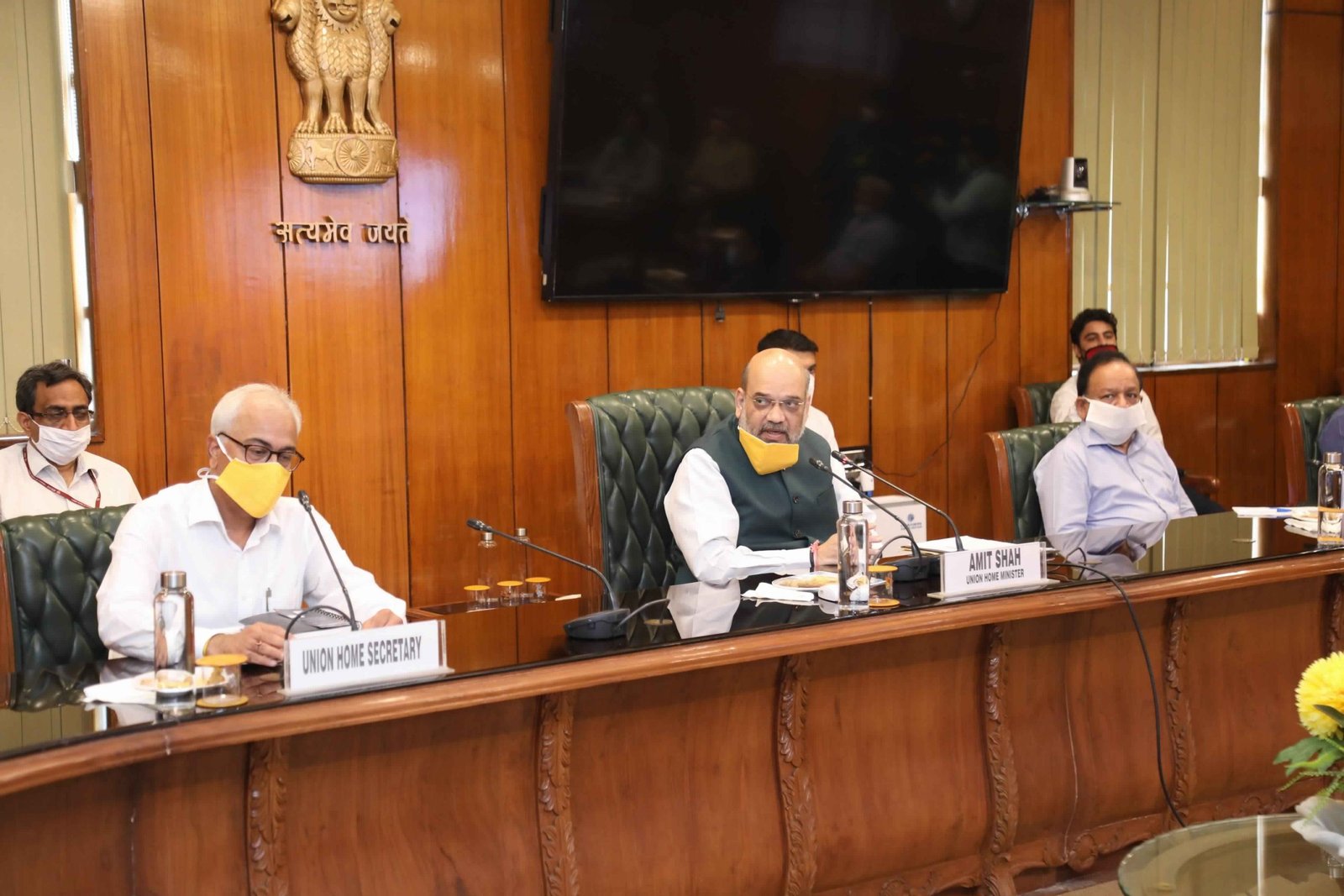Union Home Minister Amit Shah has been hospitalized again today after complaining of fatigue and body ache. Only recently, he had recovered from COVID-19.
Shah has been admitted to the AIIMS, New Delhi. “He is comfortable and continuing his work from the hospital,” a statement issued by the AIIMS said, adding he had tested negative for COVID-19.
Only four days ago, he was discharged from Medanta Hospital in Gurugram following his recovery from Covid-19.
India has the third-highest number of virus cases worldwide, according to data from Johns Hopkins University. Only two other countries — the United States and Brazil — have recorded more than 1 million cases.
Shah had tested positive for Covid on 2 August and was admitted at Medanta Hospital in Gurugram for 12 days.
The senior BJP leader, who also suffers from diabetes — a comorbidity — had initially shown mild symptoms, but he was fine after he was admitted at the hospital.
It is learnt that Shah had undergone a CT scan at a private hospital on Monday and the test results showed that he has some infection in his chest, reported the Zee News.
Shah decided to admit himself at AIIMS on the advice of his doctors. Shah is currently under the observation of AIIMS director Dr Randeep Guleria, who is a chest specialist. It is expected that Shah would remain under observation for 24 hours at AIIMS.
Amit Shah underwent an operation for lipoma in September 2019. He underwent surgery for lipoma on the back of his neck. Doctors consider lipomas to be benign tumours, which means they are non-cancerous growths. However, people sometimes get them removed owing to pain, complications, or other symptoms.
Lipomas can occur more frequently in people with specific medical conditions such as Gardner’s syndrome, Cowden syndrome, Madelung’s disease and adiposis dolorosa.
Obesity and diabetes
According to a study published in the Lancet, Obesity and diabetes are characterised by chronic low-grade inflammation with increased concentrations of pro-inflammatory leptin and reduced anti-inflammatory adiponectin. Additionally, people with obesity are often physically inactive, more insulin resistant, and with gut dysbiosis, which might increase the inflammatory response to infection with SARS-CoV-2.
Older people and people with pre-existing medical conditions (such as diabetes, heart disease and asthma) appear to be more vulnerable to becoming severely ill with the COVID-19 virus. When people with diabetes develop a viral infection, it can be harder to treat due to fluctuations in blood glucose levels and, possibly, the presence of diabetes complications.
There appear to be two reasons for this. Firstly, the immune system is compromised, making it harder to fight the virus and likely leading to a longer recovery period. Secondly, the virus may thrive in an environment of elevated blood glucose.






